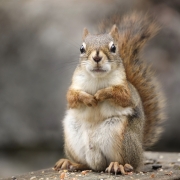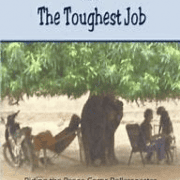Book Review: Gods of the Upper Air
Gods of the Upper Air: How a Circle of Renegade Anthropologists
Reinvented Race, Sex, and Gender in the Twentieth Century,
by Charles King (Doubleday, 2019)
Reviewed by Anne Newins

Anne Newins
Many of us may remember a class that changed our world view. In my case, it was a cultural anthropology class taken during my freshman year of college. Even though I was raised in a highly diverse environment, I had not thought about how much behavior and values were dependent on one’s culture. In four short months, I became much more tolerant and accepting of others’ viewpoints.
Gods of the Upper Air allowed me to revisit those heady days. Charles King, a professor of international affairs and government at Georgetown University, has taken a thought-provoking side trip. King’s absorbing account is about the development of cultural anthropology as an academic discipline, but it also is part adventure story and part biography. The book profiles the father of cultural anthropology, Franz Boas, and a number of his protégées, including Ruth Benedict, Margaret Mead, Zora Neale Hurston, and Ella Cara Deloria.
Since the field examines cultural variation among humans, cultural anthropology often  relies on fieldwork that take place in far flung locations. The researchers must develop productive working relationships with their study subjects, while trying to decide if what they are learning from their informants is accurate or highly subjective. Obviously, this is not easy to do and takes enormous time, patience, and strong observational skills.
relies on fieldwork that take place in far flung locations. The researchers must develop productive working relationships with their study subjects, while trying to decide if what they are learning from their informants is accurate or highly subjective. Obviously, this is not easy to do and takes enormous time, patience, and strong observational skills.
These lively and energetic scholars often had to cope with personal poverty, disease and danger during their fieldwork. They were confronting historical opinions that were racist, sexist, and frequently unaccepting of women in academia. Among others, of their major adversaries was Madison Grant, a well-known eugenicist of the time.
Most have heard of Margaret Mead and her groundbreaking work in American Samoa and New Guinea. Ruth Benedict was a lover, and most importantly, her mentor at
Columbia University. African American Zora Neale Hurston is famous for fiction writing, but was noted for her work about American folklore. Ella Cara Deloria, of Dakota Indian descent and linguistically fluent, conducted complex work about the Sioux.
Reviewer Anthony Clemons describes the book as “creative storytelling with rich historical detail to show the reader that facts contradicting established norms rarely outmatch the willingness of the masses to cling to those norms, leaving the potential for ideological change to the tyranny of time.”
A copy of the book may be found at the Rogue Manor Library.







Leave a Reply
Want to join the discussion?Feel free to contribute!